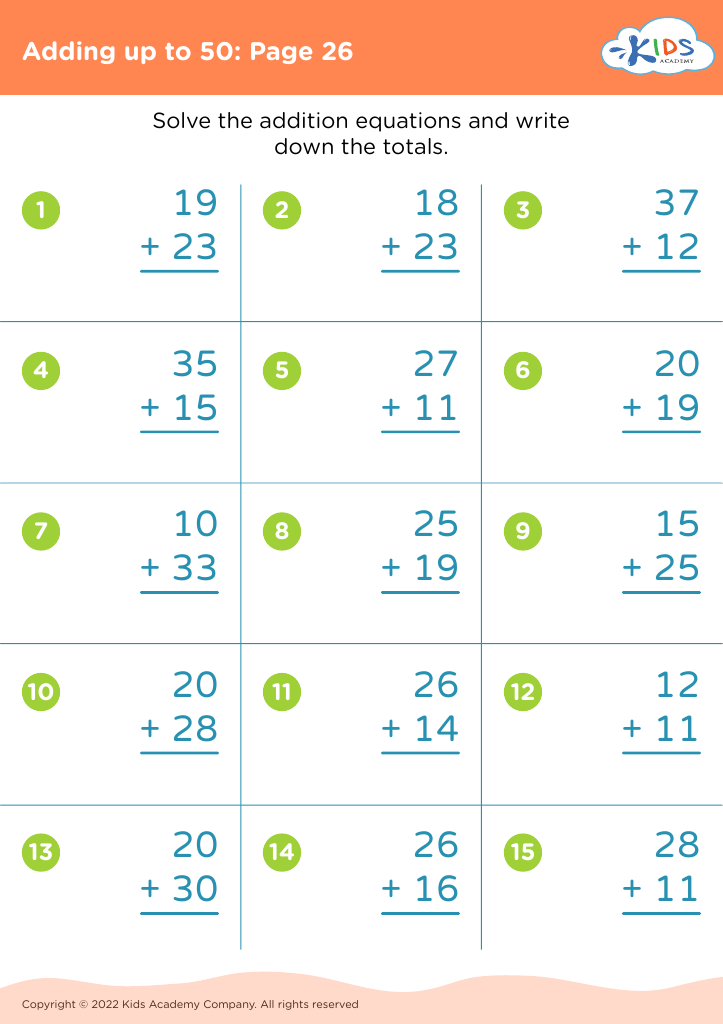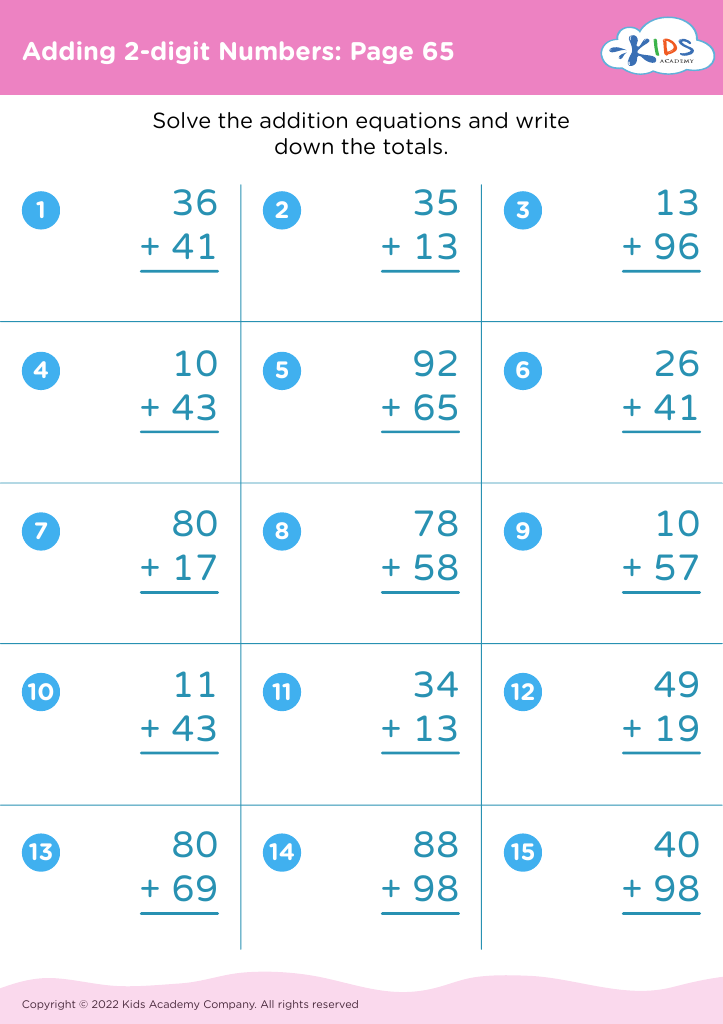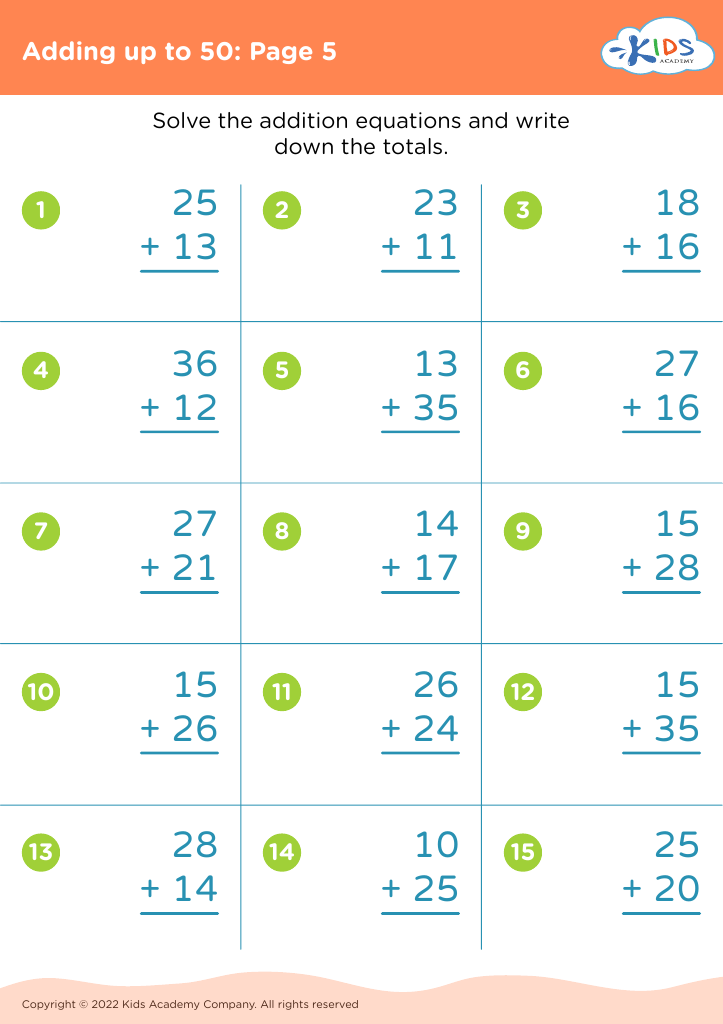Understanding adjectives Addition Worksheets for Ages 3-7
5 filtered results
-
From - To
Unlock your child's potential with our "Understanding Adjectives Addition Worksheets" designed for ages 3-7. These interactive worksheets not only enhance basic addition skills but also enrich vocabulary through adjective incorporation. Perfect for fostering cognitive development, each worksheet features vibrant images, fun themes, and engaging activities. Tailored to both early learners and young students, these printables are ideal for at-home practice or structured classroom use. Help your child build a strong mathematical foundation while simultaneously mastering descriptive language, turning learning into an enjoyable, dual-skill-building adventure!
Understanding adjectives and addition is crucial for children ages 3-7 as these foundational skills play a pivotal role in early cognitive and linguistic development. Adjectives enhance a child’s descriptive language, enabling them to express ideas more clearly and vividly. This not only enriches vocabulary but also improves listening and reading comprehension, fostering better communication skills. For instance, distinguishing between a "big red apple" and a "small green apple" helps young learners make sense of their world with more precision.
Simultaneously, grasping basic addition prepares children for higher mathematical reasoning by developing their logical and problem-solving skills. Early familiarity with addition concepts is vital for succeeding in later math endeavors and daily tasks that require arithmetic. Addition helps kids understand numerical relationships and value, laying the groundwork for more advanced math operations.
Integrating these skill sets through playful interactions, storytelling, and hands-on activities can make learning engaging and effective. For teachers and parents, emphasizing both linguistic and mathematical foundations ensures balanced development, setting children on a path to academic success and practical life skills. Ensuring early mastery of adjectives and addition supports overall cognitive growth, which is essential for a child’s future learning and everyday interactions.


























